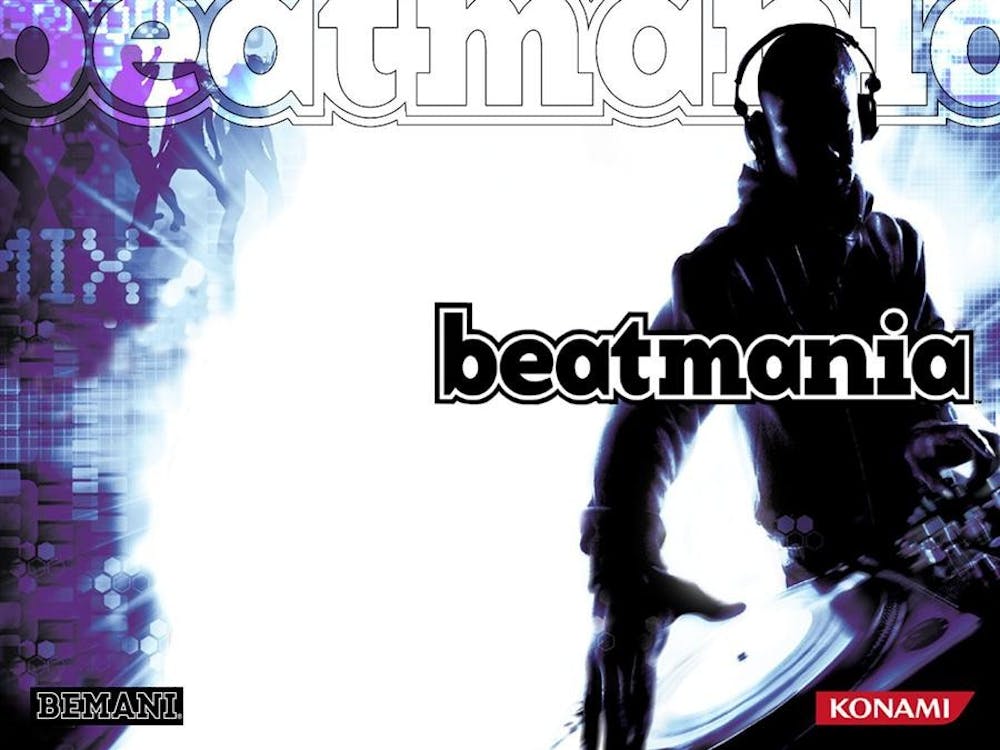Early days
In December 1997, Konami launched “beatmania,” the first in its Bemani line of music games. The game introduced the instrument controller, a five-button controller with a turntable. A similar concept would be used 12 years later in 2009’s “DJ Hero.”
In 1998 Konami released “Dance Dance Revolution.” The franchise still survives today and has seen countless versions, with 2010’s “Dance Dance Revolution” being the most recent.
Konami released two new games in 1999. “GuitarFreaks” and “DrumMania” each used instrument peripherals to simulate the playing of a guitar and drums, respectively. “GF” had a three-button guitar controller with a strum bar while “DM” had five drum pads and a kick pedal. The games featured co-op multiplayer for up to two guitarists and a drummer.
In 2001, Harmonix released its first game. The critically acclaimed “Frequency” had players pressing buttons in rhythm to play different parts of each song. The game had one direct sequel, and the game play was later used in handheld versions of the “Guitar Hero” and “Rock Band” series.
Konami released the Harmonix-developed “Karaoke Revolution” in 2003. The game measured players’ pitch and scored them based on how accurately they sang. Harmonix would develop several sequels and eventually use similar technology in “Rock Band.”
Modern days
In 2005, the modern music game was born after RedOctane and Harmonix teamed up for “Guitar Hero.” RedOctane made the five-button guitar controller while Harmonix developed the game. The franchise would become only the third franchise after “Super Mario Bros.” and “Madden” to surpass $2 billion in lifetime sales.
Harmonix and RedOctane split in 2006 after they were bought by MTV and Activision, respectively. Harmonix would go on to develop the “Rock Band” series, combining its experience with “Guitar Hero” and “Karaoke Revolution” as well as adding drums.
In 2009, “DJ Hero” was released to critical acclaim while “The Beatles: Rock Band” put the Fab Four’s music into video games a year before it would make its way onto iTunes. However, music game sales took a nosedive that continued through 2010.
Harmonix released “Dance Central” in 2010. Unlike “DDR,” “Dance Central” uses the Xbox 360 Kinect camera to track the players’ body movements and has them perform dance moves utilizing their whole body.
History of rhythm gaming

Get stories like this in your inbox
Subscribe





